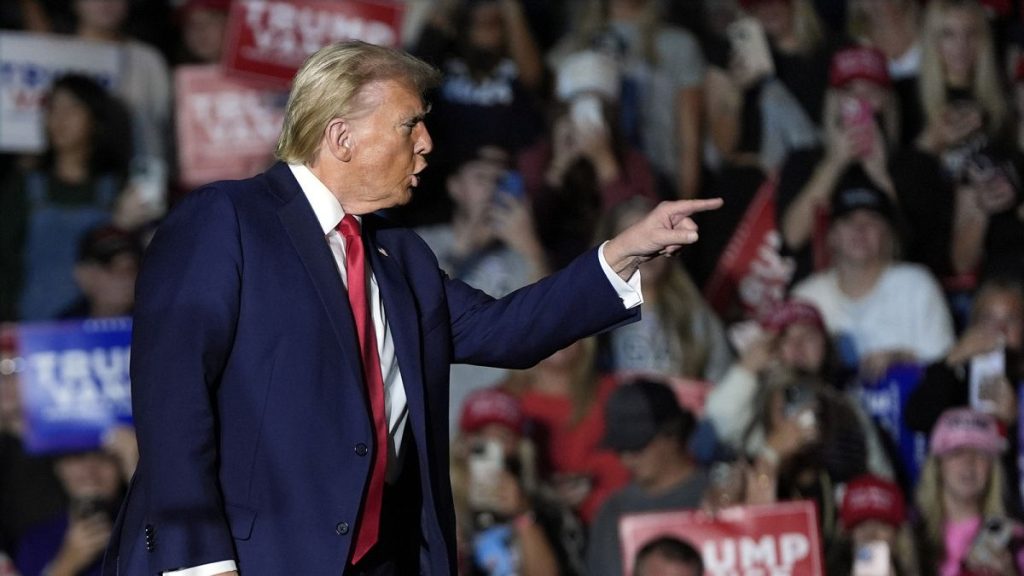The European Union’s economic relationship with the United States is significant, with the value of goods and services exchanged annually amounting to around €1 trillion. The EU has been benefiting from a surplus in goods trade with the US, but the threat of universal tariffs by President Donald Trump could have severe implications on this relationship. Trump’s proposed tariffs on foreign-imported products could lead to increased costs for American companies importing goods from the EU, potentially causing a significant decline in EU exports to the US, particularly in sectors such as machinery, vehicles, and chemicals. Germany, as the EU’s economic powerhouse, could be particularly vulnerable to such shocks due to its reliance on US exports in these sectors.
Economists warn that Trump’s proposed tariffs could have a devastating impact on Europe’s economy, potentially pushing it into a recession. Estimates suggest that an across-the-board tariff of 10% could lower the eurozone’s GDP by 1%, while more radical predictions indicate that eurozone growth could be 1.5% lower by 2028. Such a scenario could have far-reaching effects, potentially resulting in job losses and economic contraction across various major European economies. The expiration of the trans-Atlantic trade truce in 2025 could also exacerbate the situation, potentially leading to further trade tensions with the US and possible retaliatory measures from the EU.
There is a real risk that the EU could be dragged into an all-out trade war if Trump follows through on his threats against Chinese imported goods. The EU may need to respond with retaliatory measures to protect its own interests, potentially escalating trade tensions with both the US and China. While the EU has been trying to maintain a balanced economic relationship with both countries, Trump’s actions could force the bloc to make difficult decisions. Negotiating an exemption with the US to avoid retaliatory tariffs may be the preferred option for the EU, as it seeks to mitigate the potential economic fallout of Trump’s trade policies.
Analysts suggest that the EU could offer concessions and incentives to Trump in exchange for avoiding universal tariffs, similar to previous efforts made during his presidency. By providing Trump with perceived victories in trade negotiations, the EU may be able to prevent further economic turmoil and protect its own interests. Limiting Trump’s tariff ambitions could also be in the interest of his own economic advisors, as the implementation of such tariffs could lead to increased inflation and potentially result in the burden falling on American consumers. Ultimately, finding a diplomatic solution to potential trade disputes with the US will be crucial for the EU to safeguard its economic stability and maintain its trade relationships with major global partners.













